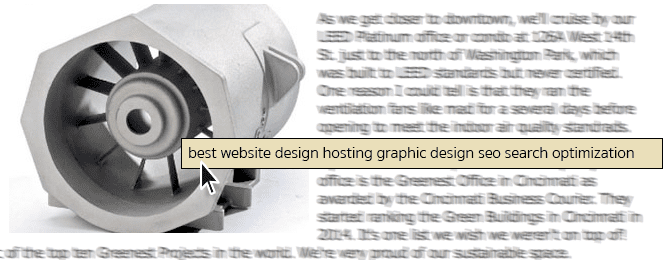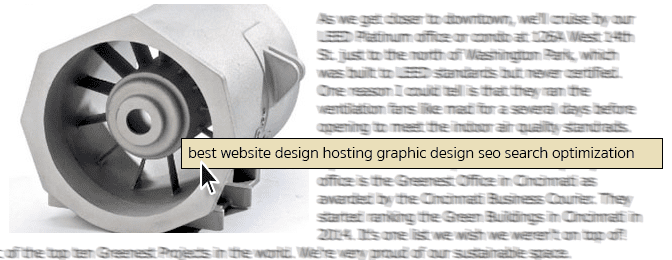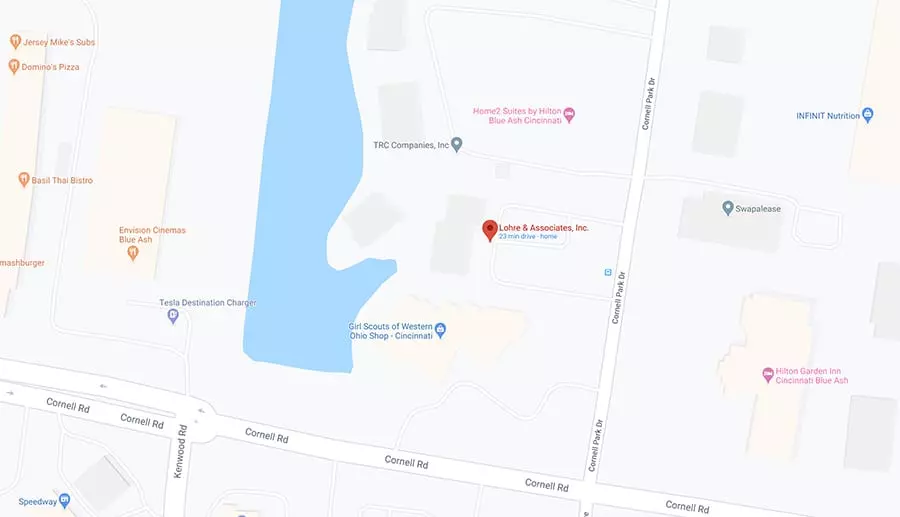Be intentional about including the following tactics in your new year marketing strategy As 2025…

Blogging: A Most-Important Part of Your On-Site SEO Strategy
When it comes to Internet Marketing the phrase “Content is King” is tossed around quite often, but when it comes to Internet Marketing, and especially Search Engine Optimization, it is important to remember that only the right content, the most relevant content to connect your business to your potential customer should reign supreme.
In considering how to streamline your site to attract visitors who match your several-to-many buyer personas, and when optimizing your site so that search providers can point these visitors your way, it is necessary to realize that there is no way that one or even a handful of pages could ever manage to cover all of this. Trying to gear even a forty-page site toward even one target audience, when so many possible keywords and long-tailed keywords are needed, will surely only result in a loss of keyword saturation per-page and hurt your search engine optimization.
Other Advantages of Fresh Content over a Static Page Site:
- Static pages, though essential later in the decision-making process, do not make for the sort of content potential customers crave when seeking solutions.
- Search providers are also on the hunt for fresh content in order to direct their users to the most relevant and most up-to-date information.
- Having a larger site, allows for more-specialized content, each page with its own content geared toward a smaller, more-precise sample of the larger target audience, with content geared more-specifically toward their needs.
- Blogging is not only the best approach at White-Hat SEO, it is a great way to avoid the pitfalls of Black Hat SEO
In order to understand why that last bit is so incredibly-important, one must first know a little bit about both White Hat and Black Hat SEO.
What is White-Hat SEO and What is Black-Hat SEO?
Search engine algorithms are constantly changing, and sometimes staying on top of it all can seem daunting, but when you think this work from a point of view outside that of a marketer, developer, or site owner, it all becomes much, much more simple:
The goal of the search engine is to connect users with the most useful, most precise, most specifically-targeted content to fit their needs. Site owners can benefit from this in that those who visit their site are more likely to be doing so intentionally, in search of related products, services, or solutions. Visitors also benefit from information relevant to the problem they are seeking to solve. These people may become return visitors or even customers, especially if they are brought to the correct page of the site to begin with, which is another important part of your site’s relationship with search providers.
Ideally, these visitors will land on that perfect page to encourage them to stay and read. If that content is informative and interesting, that content likely to be shared or bookmarked as a part of the visitor’s decision-making process. If that content does not offer valuable information, and does not give the visitor any feeling that they may be in the right place, the visitor will often return to the search provider and try other search results. You may never see them again, even if they were looking for services you offer.
Like visitors, search engines pick up on these things too. Search providers’ algorithms are streamlined more and more every day to help their users find what they are looking for, and avoid sites or pages that misrepresent or fail to represent what they have to offer. This is why you need to learn how to recognize and avoid Black-Hat SEO tactics.
Some Signs of White-Hat SEO
- You are looking to bring the right visitors to your site, which are visitors who have problems or needs that you can solve.
- You are seeking to reward their visit with information valuable to their decision-making process.
- You use accurate keywords in your content’s description, title, and url.
- Keywords can be easily found within the visible content of your page, and make sense in their context, because they are an actual part of the content.
- Inbound links come from satisfied visitors, leaders in your industry, or magazines and blogs related to your industry.
A Few Signs of Black-Hat SEO
- Keywords are repeated over and over in the content, to the point of making the content difficult to follow or unpleasant to read.
- Keywords are in content that is hidden, where it serves no use to the visitor at all.
- Inbound links are from pay-by-link sites, comments on blogs, pages/sites that serve no purpose other than to provide indexes of junk links.
- Image alt tags are not worded to inform the reader, who may be sightless or may be a search crawler, what the image actually contains.
- Content is duplicated from elsewhere, or copied and reworded to seem like unique content.
Black-Hat SEO is very-easily recognized if you think of it: Black Hat SEO is any approach that seeks to trick or manipulate search providers.
White-Hat SEO is just as easy to sum up: White Hat SEO is about creating great content in order reward the right visitors, and minimize bounce rates.
Bounce rates help no one. High bounce rates will only serve to make your marketing a more frustrating process, and prevent you from fine-tuning your marketing machine to reward the ideal visitor for finding your site.
Good SEO, and a good inbound marketing strategy is all about quality links from search engines leading to quality content specialized for quality leads. Quality *and* quantity are essential toward good keyword saturation because good keyword saturation is no-longer just about a page or a post, but the entire content of a site or domain. Site-wide keyword saturation *and* content keyword saturation work together to bring a visitor to the right page of the right site.

Diagram: How to annoy with alt tags
Blogging and Site-Wide Keyword Density / Keyword Saturation
Blogging is most beneficial from an SEO standpoint, not just in garnering shares and other relevant inbound-links to expand your authority, but in adding to the overall keyword density of your site. Adding to the keyword density of the site as a whole is much more effective than filling individual pages or posts with keywords. New posts also expand the site with fresh, unique content to be indexed, which search engines love.
If your site has 2000 original posts, and 1750 of those posts are somewhat-related to gardening equipment, your post on selecting the right tiller has a good chance of ranking well. If it is useful enough to be shared by a few individuals, it will rank even higher.
 The Value of Unique Content
The Value of Unique Content
I stress original because unique content is very valuable to your SEO, but shared or duplicated content can have the opposite effect, and serves mostly to give authority to the website(s) of the originating source(s).
Have you ever searched for information and only found the same point of view over and over again in near-identical wording over a few hundred websites? Frustrating, isn’t it? In order to eliminate this frustration, those sites that are sharing information, white papers, and other content provided to them, are far less-likely to get good search placement. – and reword as you will, it will likely be recognized as duplicate content. Doing this only serves to boost the search authority of the originator. Sharing, in moderation can be beneficial to your site’s overall keyword density, if you don’t overdo it, and remember to only share content that has value for your visitors.
Unique content through blogging (and blogging regularly) will allow you to have focused, targeted information on your site for the many individuals that make up your many prospective customers and will allow you to boost the authority of your site for all of those individuals as a whole.
Blogging has become the most essential on-site tool for inbound marketing, and is a must for anyone whose business model depends on being found through search providers.
If you are interested in our services for blogging, articles, news releases, advertorials, other content services or custom-building a CMS/COS for your web site, please don’t hesitate to give us a call at 513.961.1174 or contact us through our contact page.


 The Value of Unique Content
The Value of Unique Content
